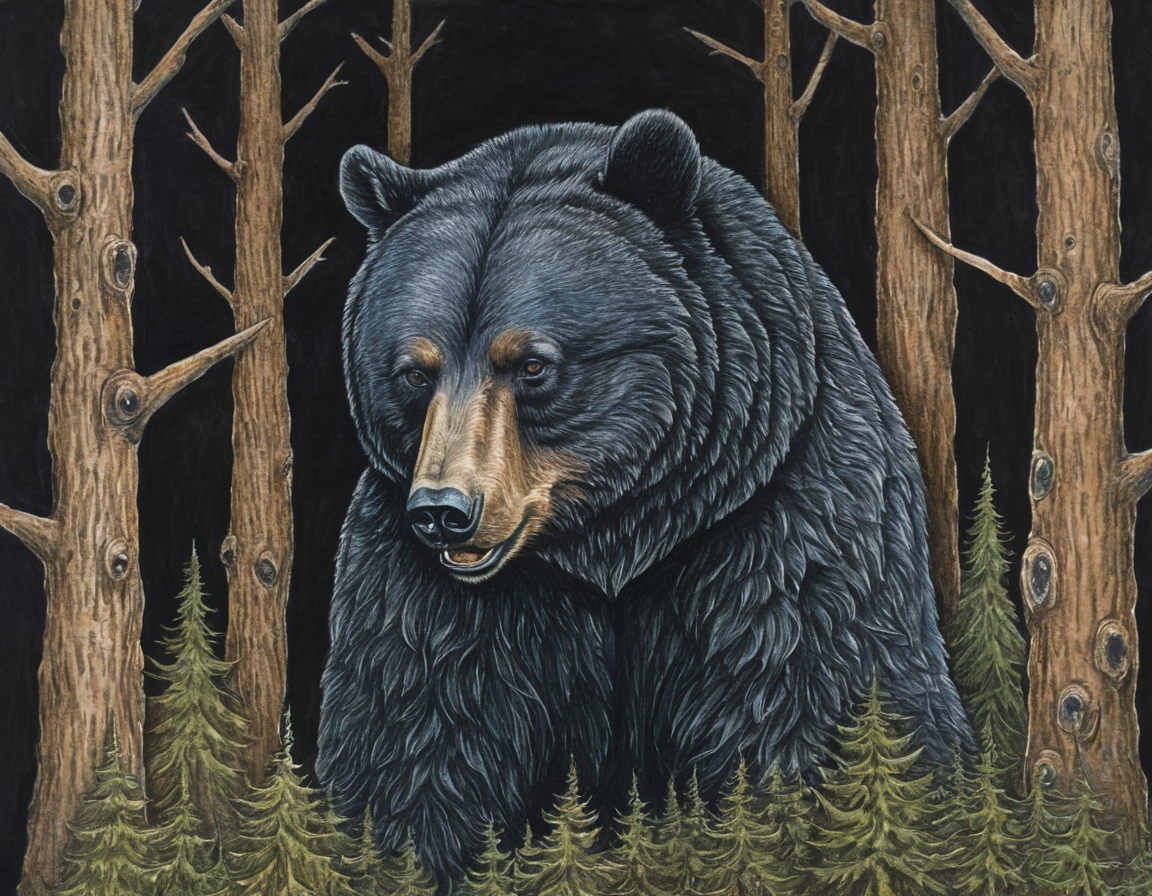Please join me in this nostalgia-induced discussion on a particular characteristic of older games that I feel like is missing on modern titles… Though I do ultimately recognize it’s I who grew up and changed, not the games themselves.
Close your eyes and think about your favorite childhood games and what elements made them stick with you… Do you recall that magical feeling of some mystery, rumour or hidden secret… one that edges on being beliveable or not, real or not? I love that, and I miss that profoundly. Let me give you some examples:
Super Mario 64:
A magical game where you explore a castle full of extremely diverse stages hidden behind paintings. But accidentally, you bonk your head against a wall and… What? There’s a whole hidden stage there. As soon as you start the game, there’s a huge door with a keyhole… After a lot of trouble and your first Bowser fight, you get a key, you excitedly run to that door and… It doesn’t open! You didn’t know that, but there’s another door. You go towards there and you find a weird room, filled with ghosts, in this otherwise empty lonely castle… There’s an eternal star statue whose text you can’t quite read, and if you happen to stumble into the right ghost… A hidden level inside a miniature mansion. Everything about this game sounds like it could be true of false: you have a room with a mirror, probably the first you’ve ever seen on a videogame, it keeps drawing you in… But the paintings in that room lead nowhere, you feel there’s a stage there… But where?
Here’s a fun anecdote from my childhood: I’m brazilian, and I didn’t speak english. I had an uncle that could translate some text for me, but he didn’t understand videogames. So when I’ve read the next star was called “Pluck the piraña flowers” and my uncle translated that into “give the Piraña a flower” I spent WEEKS dying to that actual Piraña fish in the stage, trying everything I could to give him a god damn flower… When I finally realized how to actually get this star, I begged my mom to call my uncle, now in college, to tell him how to get it.
Club Penguin:
Sounds silly, but Club Penguin absolutely nailed this aspect of mixing real game elements with rumours children would spread in school. There were hidden items everywhere, events that would change the world in subtle ways, adventures that did require exploring the island slowly… And then your school mate tells you that if you are at the right place at the right time, during an actual event, you can get an autographed background from the story NPCs. They’re real penguins, and you can talk to them and get this rare item. I mean… This very same friend also told you that in Super Mario World falling into one specific hole pressing Up + Y would unlock a hidden laser powerup, so you don’t quite trust it, but they swear their cousin is got the autograph… And it sounds beliavable. So I would spend weeks searching and one day, one magical halloween, I actually was there to see the NPC and get the autograph - it was real, and all the crazy effort was worth it.
Minecraft:
Now once again being a brazilian kid, gaming is quite a challenge. My first contact with Minecraft was on my XP-era laptop with an Intel graphics accelerator that existed before the “HD Graphics” era. This means that Minecraft ran at 20 FPS normally, at the lowest draw distance, and if it started raining the FPS would drop to 5 and I would dig a hole and hide until it stopped. This lack of visibility, and my lack of english skills to understand the Minecraft wiki, made the entire game a HUGE mystery: what items can I create? What minerals even exist? What monsters could exist down below or far from home? Can Bedrock actually be broken somehow? Should I be afraid of the Nether? Herobrine… actually exists?
I know this wall of text might make little sense… But as an adult, I know English. I probably know most of a game’s mechanics before buying it. I can play with the Wiki right by my side. If I tell a friend I think there’s some crazy mystery hidden somewhere… They’ll Google it and tell me if it’s real or not.
I just miss that magical feeling of wondering what’s there…
Play Baldur’s Gate 3, one of the two newest Zelda games, or Elden Ring without a walkthrough. You can still get this feeling, but due to economics, you’re unlikely to find it in big expensive games anywhere near as often anymore. Smaller indie games can experiment more with this sort of thing. But basically, it’s still out there.
For me I got the feeling from dark souls 1. I was exploring because it was such a beautiful and interesting world full of treasures to find. I loved the idea that at any point in game you could find or miss out on finding good gear.
Absolutely. A huge reason why soulslikes are so beloved. Through a huge combination of deliberate decisions touching nearly every facet of the game, an ethos is crafted all for the sake of intriguing the player, challenging the player’s mind and physical execution, and then triumphing, with discovery of several forms peppered throughout the way.
The lack of a map, enabled by a well designed and memorable world is one of the best examples for me. Nothing else I’ve played quite matches navigating Dark Souls without a map. You’re in one spot of this large, interconnected, seamless world. You just finished grinding an item in Darkroot Garden, and you want to return to Firelink.
Mentally, a collage of images appears in my mind, laying a pathway, a map of the world, the different paths and elevators I must take to get to where I need to go, and I begin walking, and I follow my own directions. That experience is all over the place in that game, and for all the obtuseness that’s in there, it was still so worth it to commit to that design so hard.
BOTW was one of the first games in a while that hit me with that feeling. I had so much fun with it and I still haven’t beat it because I’ll be damned if I don’t 100% the game first. It was a little slow at first, but I came to appreciate the pacing more as I played it.
I’m also just getting back into Minecraft after not having played it consistently since 1.13, and I’m having so much fun with all the new shit.
I second this. Also add Cassette Beasts to that list.
For me Tunic perfectly captured that sense of wider and magic that I felt as a kid experiencing adventure games for the first time. Hyper Light Drifter and Outer Wilds gave me a bit of that as well. I highly recommend all three if you are looking for a similar experience.
One thing I’ve found that helps is not watching trailers and reading articles/threads. I’ll watch a single trailer, usually the first one and then ignore everything else. Now I get to discover everything on my own and don’t have a ton of preconceived notions and opinions already in my brain when I first boot it up.
It’s made my gaming experience a hell of a lot more enjoyable again
Absolutely. There are a few studios I love so much that I know what they produce I’ll enjoy well enough to find it worth it, and so I’ll watch a gameplay trailer or two to get a baseline understanding of the type of game I should expect, and as soon as I’m satisfied by the premise, that’s it.
I wait for release and explore around the possibilities myself and wonder things, and test things, and get mad that I didn’t realize I could do a thing the whole time, but it’s really just an awesome way to experience a game.
Of course, this only works if I trust that the studio will put out a baseline of quality and expected type of gameplay. If a game is of questionable quality money becomes a larger issue than ideal experience.
If it’s an unknown studio or something I’m dubious about I like to check spoiler free reviews after the launch just to see if everyone hates it/it’s broken or not and then I’ll give it a try. Other than that I still try to avoid most media about it. Reviews, trailers and forums give so much info, spoilers and wish lists presented as fact that it can lead to let down I wouldn’t have had otherwise
I’ve also tried to let go of the idea of what I want the game to be and just let it be what it is, which for me has made them much more enjoyable
I love playing games (or watching movies) blind.
For sure movies too. Trailers have ruined more movies than I can count. Going in blind or having only seen the first trailer really made the entire experience much more enjoyable for me
This is one of the ways in which generative AI in games is going to be awesome as the tech matures.
I remember playing the Zork-like text dungeon AI using GPT-3 as the backbone.
It started with me as a wizard looking for a certain book.
When I found my way to a library, I could have it read the various titles of each book on each bookcase, and even flip open to a page, which in turn led to a completely different path of surprise and mystery.
Pairing procedural generation with generative AI within a properly bounded set of constraints and caching variations is going to lead to another level of immersion and discovery from anything we’ve seen yet.
It’s become nearly frustrating playing games now and seeing where they fall short of what it’s going to be by this time next ‘generation’ of games.
World density and that sense of discovery around each corner that’s not being spoon fed to you in advance via behaviorally targeted YouTube video previews or junk game articles summarizing Reddit posts is going to be a wonderful thing.
Games are going to be going through a whole new Renaissance as the industry adjusts and adapts to emerging tech.
The issue is more generation is leaned on the less powerful it becomes. To create those stores that you were reading in books it was fed lots of other fantasy and game information, as more of its used the less ‘new’ stuff it can make.
That’s really not the issue.
The breadth of the modern LLMs is wide enough there’s no need for further broad training.
There’s certainly room for fine tuning (likely coupled with a discriminator) around specific world lore, like feeding it all dialogue and book text from all the Elder Scrolls games if you wanted it to generate things fitting with that universe.
But there’s no limits on how ‘new’ its stuff can be as long as properly seeding its prompts.
You’ll generally see development moving towards manual development for core story and generative AI for the extended universe. Almost like a literary foveated rendering, filling in the peripheral world with generated content while the core story beats are manually directed.
Also, keep in mind that by the time AAA games release where their design is predicated on generative AI existing, we’ll be about 2-3 generations ahead of where we are today in generative AI products.
The common thread in all these responses is: play something without looking anything up, and only talk to other people who are doing the same thing. Which is a tall order, I know, but it’s easier for some games than others. But I agree that having that experience with a new niche indie game isn’t the same as having that experience with a game you and all your friends have been playing for years.
This was/is the one thing that I hope cloud streaming exclusive titles could bring back in some way. If the binary isn’t distributed, then people can’t know everything. Everyone’s knowledge of everything would be based on in-game exploration and word of mouth. Some things could remain hidden in plain sight indefinitely.
I played Milon’s Secret Castle on the NES as a kid. The game is pretty much unplayable if you don’t have an infinite amount of time and patience, or a guide. There are hidden doors and items in unexpected places that are required to make progress, some rooms are dead ends that soft lock you, there are hidden exits that you have to find by pushing on a random pillar etc.
Once I accidentally didn’t push the cartridge in all the way and the game started out in a random room and full of glitches. This lead me down a rabbithole of searching for hidden stuff, maybe even beat the game, but most of the time it just failed to start.
Another one was San Andreas. I played it when it came out and I read online about myths like bigfoot, the meeting place of the Epsilon Program, ghosts in the desert, aliens etc. I must have spent hundreds of hours searching for these.
Well, gaming now just showers its players with awards and achievements. Back then we had to earn it by using our brain, fine motor skills, and patience. People just want instant gratification these days, and mainstream games mostly cater to that. They take away all obstacles to the player:
-
Real survival horror games don’t exist anymore, they’re all action shooters with elements of horror now. The fixed cameras and intentionally discouraged combat were “too frustrating” and the slow pacing made squirrel-brained new-age players lose interest too quickly. Rule of Rose, Haunting Ground, Kuon, all in a genre that is basically gone forever. Even Silent Hill 2 Remake is changing into an action shooter.
-
Puzzle solutions are told directly to the player, because using your brain is too hard and delays the reward. God of War literally tells you the answer before you barely even look at the puzzle. Zelda got rid of massive dungeons and temples in favor of tiny one room puzzles that are all rather simple to solve, and 3 room “temples” whose only mechanic is pressing 5 buttons. No more temple-wide puzzles like the Water Temple in Twilight Princess. No more YU-NO obfusicated nonogram puzzle.
-
Games now include rewards for completing the tutorial. Remember what the reward was for completing the tutorial, if the game even had one? Yeah, we got to play the rest of the game. It wasn’t some Ultra Sword or 500 Useless Coins, it was the knowledge necessary to completing the game. I mean, most games used to include a manual that you could read that would teach you all that you needed to know, modern games don’t really have those either. Because reading is slow and doesnt give you a reward.
The only games that are really still keeping any of this from completely dying are a few indie games here and there, and FromSoftware games. Even Elden Ring is by far the easiest of all the Souls-like games by From.
Real survival horror games don’t exist anymore
We’re in a renaissance of survival horror games right now.
Puzzle solutions are told directly to the player, because using your brain is too hard and delays the reward. God of War literally tells you the answer before you barely even look at the puzzle.
That type of mass market game has been doing this for a long time. Uncharted: Drake’s Fortune literally gives the main character a book with all the answers instead of letting you solve the puzzles yourself, and that game came out in 2007.
Games now include rewards for completing the tutorial.
In the case of achievements, this is often for stat tracking reasons. Otherwise, it’s a good way to tutorialize you on how to use those hypothetical coins. If we’re being honest, most games don’t have explicit tutorials anymore. They’ll have learning tools baked into the game itself. There’s a principle in game design where if you can make multiple decisions but one of them is objectively best, you should just make that automatic so that it doesn’t appear to be a decision, but the exception to this is when you’re teaching the player, somewhat invisibly, how to play the game. Like if you have a skill tree and you start without a crucial skill that you’ll definitely want first, it’s okay if they make you choose that skill first just so you know how to interact with the skill tree. The 500 coins for completing the tutorial often fills this exact role, unless it’s tied to a free-to-play-esque business model where “the first hit is free”.
“streamlining” is definitely happening. A lot is to just keep that serotonin going with happy rewards.
1 person I was talking to mentioned it might also be a change because of target. Zelda botw/totk was ment to be played in short burst while on train or a quick shrine or so before bed. Thus the bigger puzzles and things that requires a longer play (to avoid the wtf what is happening when I played yesterday question) are being phased down
The journal in Morrowind is the best solution to “What was I just doing yesterday/last week/last year?” Its not even hard to program something like that. It might take one person a week at most to create it with all the text data necessary.
Yes, very useful tool. Not something that can be just thrown in. Has to be part of the system almost from start so that the appropriate ations and and text can be linked (unless it’s reading through save state and or is how the save state is read but that also had to be thought of early)
However, also not exactly what I ment. For instance years ago on doing a replay of Zelda oot left for about a week midday through the water temple. I could not figure out where I was in the puzzle for some time and ended up reseting as much as I could to just re walk through as much as I could. Somethings can’t be pre script written out due to unknown changes or capture what the user thought process is
I am not a huge fan of the “shrine” approach where everything is bite size but that seems to be the idea to make it easer for on the go. If you only have 15ish min of play what’s more enjoyable? Catching up what you did and trying to figure out what’s everything like since you last did things or knowing that this thing here is or needs to be done in front of me and I can continue.
-
I remember a lot of moments like this, the sheer time I had to mess with systems, how things weren’t taken for granted and all seemed new - Halo 1’s Flood reveal blew me away and the driving physics were incredible - it changed on ice and the Warthog’s turret ejected casings that bounced and accumulated on the ground! And then Halo 2/Half-Life 2’s physics impressed me, etc. But of course going back to some things from today’s perspective makes them seem primitive. Starcraft’s 12 unit selection limit? Skyward Sword’s lack of direct camera control without hitting a button?
But most recently I’d say Outer Wilds, Titanfall 2 and the recent main Zelda games threw the most wonder at me.
Outer Wilds for being a completely fresh onion of a puzzle/space exploration game, plenty of video essays with varying levels of spoilers there.
Titanfall 2 is on the surface a sci-fi FPS but the shift in scale between on-foot and in-Titan is unique combined with inventive levels and mechanics.
Breath of the Wild amazed me with the reveal of its scale and world.
Tears of the Kingdom amazes me with how polished it’s physics and sandbox is, I haven’t seen things work as well and without crazy quirks like I have in this game.







